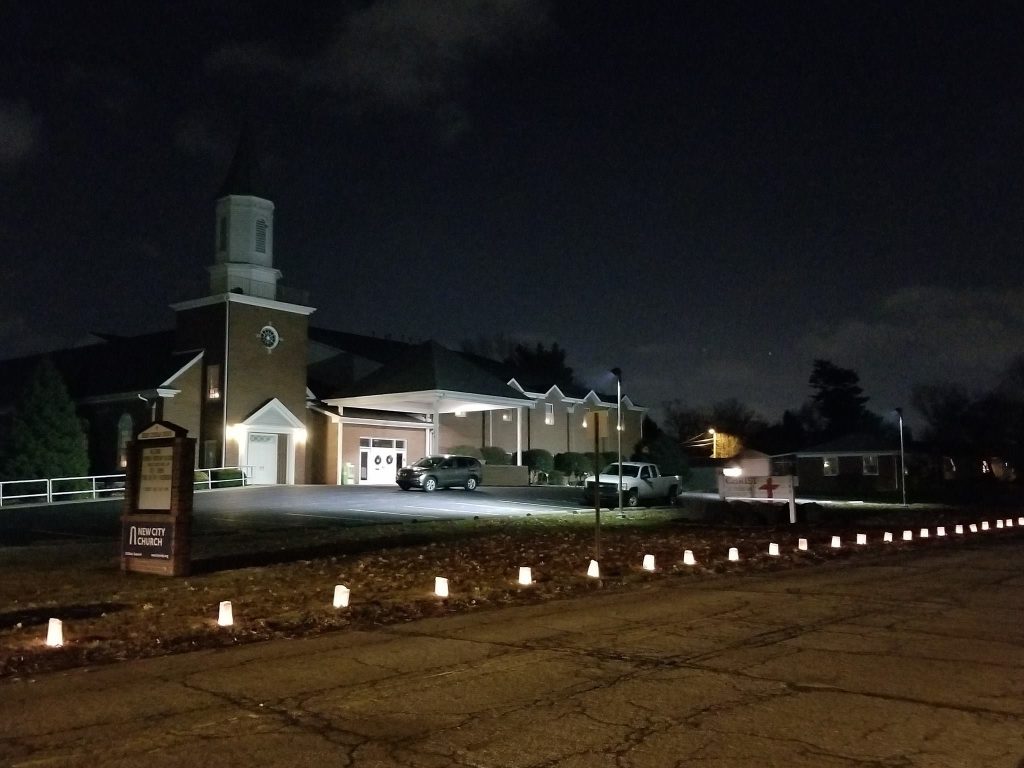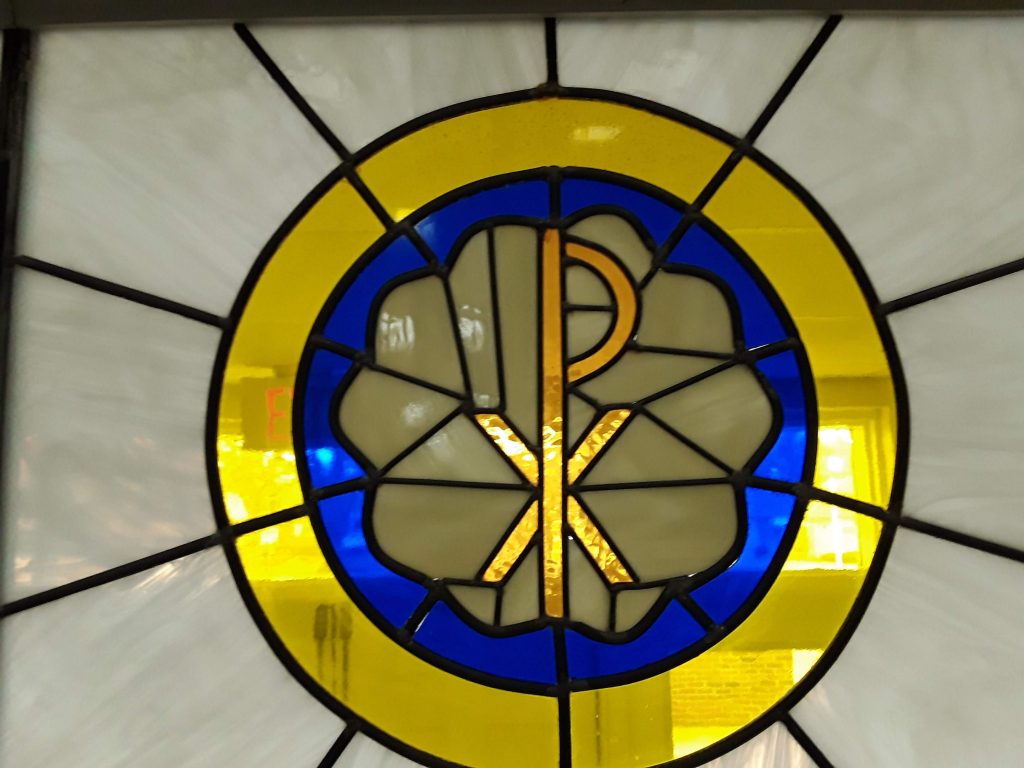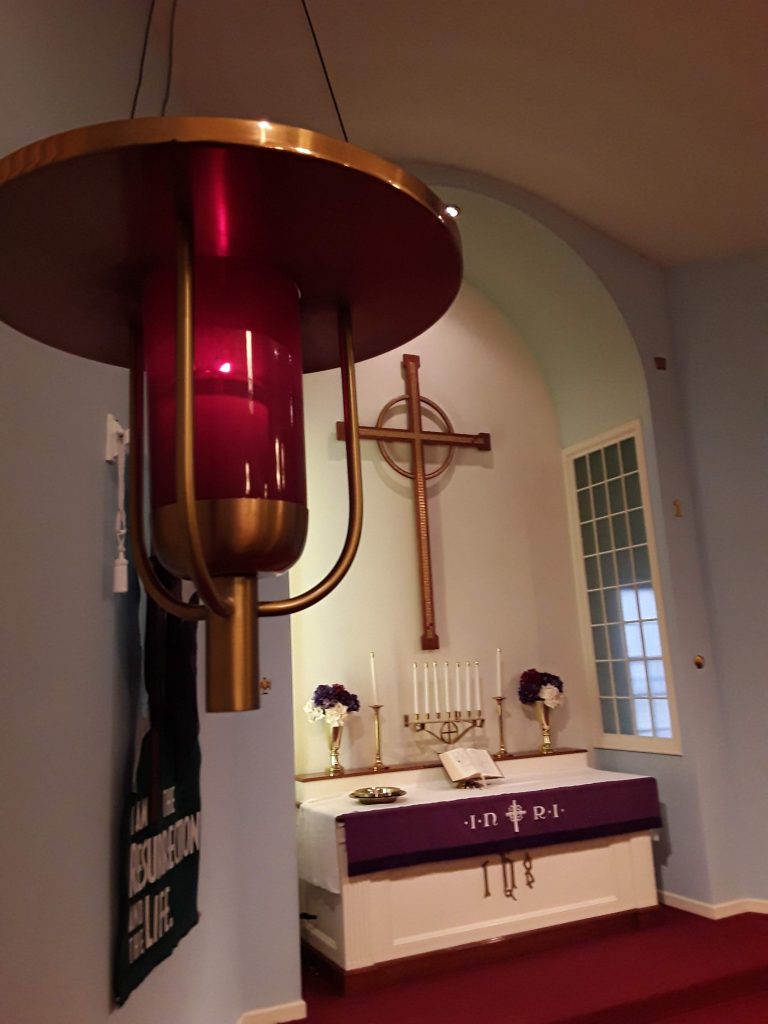“Arise shine for your light has come, and the glory of the lord has risen upon you.” “But darkness shall cover the earth, and thick darkness the peoples.” So which is it? Epiphany is the season of light. The wise men follow the star until it casts its beams directly upon the house where the young Christ lives. The lights of the Christmas tree still brighten the sanctuary. We just sang about Christ our ‘Morning Star so fair and bright.’ The light of Christ is here in this place.
Tragically there is also a world out there that is still covered by thick darkness. Generations of families live in cycles of addiction and abusive patterns, with an everyman for himself mindset. In America death is seen as a good thing, as something that can make the burdens of life easier. The elderly and infirm are inconveniences who hold us back from moving on with our lives. And of course nothing says darkness more than cheering for the right to kill the unborn child as a hallmark of living the good American life of freedom.
Many who were to a certain extent, raised in the church, live their lives as if Jesus has no significance to them. They may not oppose Christianity, but their lives look and feel no different than the rest of the culture. People seek to live how they want to live and would prefer to stay in the darkness rather than hear from the church about God’s will for their lives.
The world needs light. The darkness of the world is sin. Under the fear of death sin reigns. The darkness is so vast, yet Epiphany brings to our attention Christ’s appearing to bring the world to that place of light.
The church also needs light. In the reading from Isaiah, the sins of Zion have covered them in darkness. Through seeking safety with alliances of this world Israel plunged itself into darkness. Israel was given safety and security in the form of the covenant and sacrifices. Likewise the church can often look outside of the promises of the sacraments for its well being.
As individuals we need light. Each of us are in the darkness of our own sinful flesh. We make our own alliances with the world around us, things we tend to trust in or rely on to make ourselves feel more secure about ourselves materially or emotionally. But whatever alliances we make are hollow and unreliable, we need the light.
What is the light? The light is the enlightening of the Holy Spirit. In the Large Catechism Luther puts it like this “The Holy Spirit leads us first into His holy congregation and places us in the bosom of the Church. Through the Church he preaches to us and brings us to Christ.”
When we think of the world through the perspective of science, most light comes from starts, our own sun and the stars of the night sky. One of the verses our hymn of the day is based on is Revelation 22:16
“I, Jesus, have sent my angel to testify to you about these things for the churches. I am the root and descendant of David, the bright morning star.”
The light is the gospel: justification, all sins forgiven in Christ Jesus. From the Small Catechism: “where there is forgiveness of sins, there is also life and salvation.”
The light is for us in the church. We would have no light unless the Holy Spirit worked repentance in our hearts and proclaimed the gospel to our hearts. And the light is also for our world. We see in verses 3-6 of our reading from Isaiah that the Word does go out to all. It goes out because outside of the gospel there is no salvation. Without the gospel without forgiveness there can be no light.
“Lift up your eyes all around, and see they all gather together, they come to you” Have you ever seen how people can come to us, to our church? Maybe it is the occasional visitor who comes through our doors seeking some meaning or purpose in life. Or maybe at a funeral we have held here in recent years, a neighbor from the old house off 10th st. has come into our sanctuary, or a close work friend who has not been in a church since teen years.
Maybe it is some of our own family members coming for a Christmas Eve service or a wedding who have been summoned by the Lord through such circumstances to be here. People come to us because no matter how much darkness there is in the world, the church appears to offer something that cannot be found anywhere else.
Listen to these words from Isaiah 49:6: “It is too light a thing that you should be my servant to raise up the tribes of Jacob and to bring back the preserved of Israel; I will make you as a light for the nations, that my salvation may reach to the ends of the earth.” It is too light of a thing that we should see to only that those who are already here know the gospel. We have a purpose alongside this, to see God’s salvation come to others through us.
Certainly in learning how to serve a need or two in our community on an ongoing basis we will, Lord willing provide more numerous occasions where people are drawn to be here.
Also from the Small Catechism: “The Holy Spirit has called me by the Gospel, enlightened me with His gifts, sanctified and kept me in the true faith.” We have been by reason of our faith in Jesus, called by the gospel. We have been set apart for a holy calling. We are those who have been called into the light!
The world may despise you more and more each year for your faith, yet- you are the light to the world! Galatians 4:26: describes the church as our mother, whether we realize it or not, it is only through the church that we know Jesus, that we know God’s love and forgiveness and mercy to us. SO it is also only through the church that the nations will come to know Jesus.
Last Sunday after worship I changed the church sign letters from advertising Christmas Eve service to a message reminding us that January is right to life month. I wrote out the message on paper and organized the letters, asking people to pray for the unborn, and for an end to abortion. Part of me felt a sense of caution- what will happen if I put this message up. Will it upset someone in the community, could it spark a demonstration from some political interest of the abortion industry? My better judgement told me that it will not get that much attention, its nothing to worry about.
And my faith reminded me that it is best to communicate whatever I intend to communicate that is in accordance with God’s will- and not to be afraid to speak issues of truth. The key on the North side of the sign is not easy to turn, it seemed like harder than usual. It was windy enough where some of the letters which hang on a metal lip on the top were falling off. A gust of wind took down half the message. I thought, maybe this message is important, that it is hard to get all up.
I ran into pastor Roger in the hallway that morning and told him I wondered if the sign would upset anyone in the community. I believe he said, ‘hopefully it does upset some people’, – we support the message all the way. One step at a time we are called to let the light of Christ shine through us into the darkness in the world.
Later last week I received the Lutheran Reporter in the mail. The front headline contained a story that truly made me smile: Faith in the public Square: LCMS Youth starts ‘students for life’ group at her public high school. Anna Young, of Nashville, Tennessee a neighbor congregation to the South of us.
She is quoted in the article: “A lot of people keep their pro life views to themselves , but I found myself questioning that, I always think of the Elie Wiesel quote: ‘Neutrality helps the oppressor, never the victim.’ I had to do something. People ask, why don’t I keep this issue in the faith realm, why did I have to extend it to the public arena of my High School? My answer is simple, it is too important.
Life is too precious, all life, at all stages, from all backgrounds, and all parts of the world. Life is not just a political or a religious issue, but a human rights issue. Once I truly understood the magnitude and reality of the injustice at hand, I couldn’t sit and watch my fellow peers not know the truth.”
Anna described how her own character has been questioned, she has been gossiped about, and lost friends. But the result is that abortion is being talked about in a public school, where normally it is not.
Arise shine, you are the light of the world. As you have been given new birth in Holy Baptism, as you are sustained by the body and blood of the Lord, you are honored with a holy calling. The Lord uses you to stand in the darkness of the world and shine His light. “Arise shine, for your light has come… and nations shall come to your light.” In Jesus your light has come.
Epiphany, a day for the church to celebrate the light come to the world. The Wisemen were drawn to the star to see the Christ child. And so are people brought to repentance by the Holy Spirit to see the light of Christ in us. To see through the imperfections in our own lives,-and instead to see our repentance, our humble receiving of God’s gifts in worship, and our joyful expression of faith and hope that God’s Word works in us.



